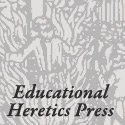OPENEYE FEBRUARY 2011 UPDATE CAMPAIGN MATTERS
The most important item to report is the news that the government has now decided not to go ahead with league tables for five year olds (see the item below). We think that any policy which sets expectations or targets for all young children at a specific date or age is developmentally inappropriate and cuts across the important principle of the unique child. We will continue to strongly oppose any such proposals. The younger the children are, the less appropriate it is to compare them with others. We would rather see practitioners focusing on each child’s unique strengths, interests and learning dispositions and celebrating these with their parents.
The other item that is causing a great deal of concern is whether the teaching of synthetic phonics should be made compulsory. Even within OpenEYE we have differing views on the value of phonics and it is a debate that has been going on for decades.The DfE has just closed a consultation regarding the introduction of phonics screening tests at the end of year 1. The testing will apply to all children (whether in independent or maintained schools) and the screening check will start at an age when children in alternative settings such as Steiner Waldorf would normally not have had any introduction to formal literacy. Whether or not you agree with the use of phonics the statutory imposition of such tests is surely compromising any pretence of the government supporting pedagogical diversity or parental choice.
The 2005 House of Commons Call for Evidence produced the following comments that we feel are highly relevant:
“What worries me about what we have just heard is that it implies that children come into school with no reading at all and suddenly they are taught by people who are called teachers. In fact as soon as a baby looks at a symbol on a cot and points at it, they are actually learning to read.”
“In Finland, if I were to say Reading Recovery they would say ‘Recovering from what?’ There is a sort of strange notion about reading and you know that for me early intervention is the key. We have many adults who can technically read, but very few who ever read for pleasure. That disposition to read and that joy of reading is actually an essential tenet if we are going to have reading.”
“What is the point of creating children who are proficient decoders through phonic awareness if they do not read for pleasure as part of lifelong learning?”
“It is important to emphasise that it is not the children who are failing in literacy, but our methods which are failing the children.”
Concern about early years interventions
At the beginning of January this letter was published in the TES and signed by some extremely highly regarded experts in the field.
Early years plans sound an early warning
We are writing to express our concern about some of the early years interventions announced in the recent education white paper. The education secretary has stated that he will reduce the amount of central control, instead trusting professionals to make principled decisions. The Department for Education’s business plan also recognises the importance of high-quality early years education. These are entirely sensible aspirations.
However, they do not sit well with a number of proposals in the paper. The proposed phonics teaching in the nursery and reception years, and phonics test in Year 1, are not supported by research evidence. Phonics is an essential element of learning to read, but the timing of the introduction of a systematic programme is crucial. The white paper starts with a comparison of educational standards which shows that the UK appears to be falling in relation to other OECD countries. Yet – in contrast to the successful models elsewhere, where formal schooling and the teaching of reading do not begin until children are six or seven – the plans would impose increased and earlier emphasis on basic phonic skills.
There is evidence that children who are given plenty of time to develop their communication skills and to enjoy books before they are expected to crack the irregular phonic code for English do just as well at the age of 11 as others whose enjoyment of literacy is undermined by premature pressures to decode text. This is all the more true for children who do not get rich experiences of language and literacy at home. The introduction of a test in Year 1 in which they would decode non-words is particularly unwelcome. At this age, children learn by making sense of the world around them, and it is hard to think of anything more confusing than words that are nonsense.
As for the teacher training proposals, the most recent annual report from Ofsted finds that more outstanding initial teacher education is delivered by higher education-led partnerships than by school-centred initial teacher training partnerships and employment-based routes. It is difficult to reconcile this evidence with ministers’ determination to focus on work-based training.
Wendy Scott, president, Association for the Professional Development of Early Years Educators (TACTYC); Pat Beckley, Bishop Grosseteste University College, Lincoln; Professor Pat Broadhead, Leeds Metropolitan University; Maulfry Worthington, doctoral researcher, Vrije University, Amsterdam; and 12 other signatories on behalf of TACTYC.










